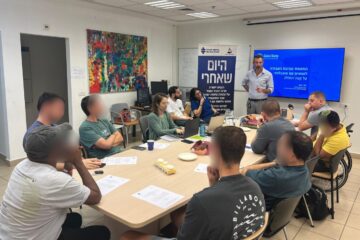On March 22, 2016, Israel passed new regulations, under which academic institution are obligated to ensure accessibility to people with disabilities.
These regulations apply to all academic institutions and education schools.
Under these regulations, full accessibility is required, both in the building, in the institution’s physical area and in the education services these institutions provide. The regulations will promote accessibility and equal rights to students with disabilities, from admittance and throughout the course of their study.
The regulations define and determine that every such institution will establish a support center to students with all kinds of disabilities. The support center will provide students with personal and professional accompaniment, instruct them in acquiring and improving learning skills, and educate them about adaptations and their application in the school. The support center will also accompany and instruct the teaching and administration staffs regarding adaptations and support for students, and handle all individual adaptations necessary to assure students’ learning and success.
Higher education facilities will be obligated to perform individual accessibility adaptations for the students, so each disabled student receives an adaptation program tailored to them, so they can meet all scholar requirements. This will include adaptations of teaching method, exams and assignments, and school protocols, as long as these adaptations do not impede the essence of the academic service.
Obligated adaptations
Among the concrete adaptations every academic institution is obligated to instigate are the allocation of accessible parking spots in every parking lot, access routes, accessible restrooms, accessible signs, and accessible halls, restaurants and cafeterias.
Every library will employ a person who will assist disabled people.
In the area of service accessibility, websites and applications, as well as telephone call routing services, will be made accessible. Employees will be trained to provide accessible service.
The institution will provide personal wireless systems to enhance hearing in laboratories and exercise rooms.
In all study rooms, two special seats and two seats for supporting personnel will be allocated.
Every institution will appoint an accessibility coordinator, who, as much as possible, will be a disabled person.







